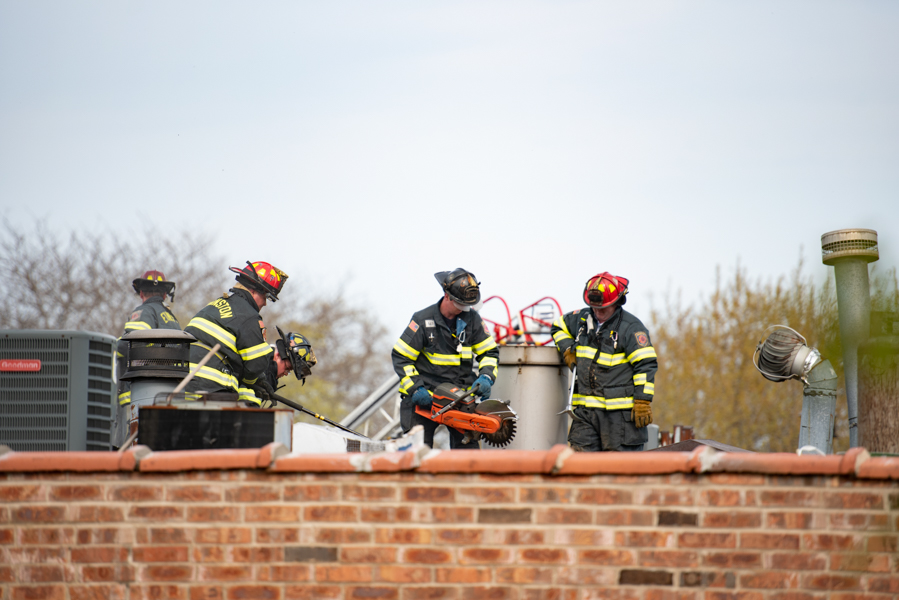Evanston firefighters provide emotional support to first responders
Evan Robinson-Johnson/Daily Senior Staffer
Evanston firefighters use a fire rescue saw. Many have turned to peer support groups after experiencing job-related trauma.
October 6, 2020
Glenn Vanek was a 27-year-old firefighter in 1993 when his station received a call: a home was on fire and a family was trapped inside. When Vanek arrived at the fire, he saw a woman pointing frantically at a burning home.
“She kept saying her husband and children were inside,” he said.
Immediately, Vanek entered the burning home and began battling the blaze. Despite their efforts, Vanek and his team were unable to save the woman’s husband or children. He said the incident stuck with him for a long time afterward.
Vanek participated in a critical incident stress debriefing and talked with his co-workers to help ease his pain. However, he didn’t feel like the support system in place was adequate.
“A lot of those discussions were around a bottle of beer,” Vanek said. “It’s not the healthiest thing. But it got me through.”
Today, Vanek volunteers with Illinois Firefighter Peer Support (ILFFPS), a nonprofit organization in Evanston that connects firefighters and emergency medical personnel with a trained peer they can talk to.
ILFFPS Executive Director Tom Howard said firefighters are uniquely capable of supporting other firefighters because they have similar experiences.
Howard got involved with the organization after he reached out to a licensed counselor 20 years ago to talk about job-related trauma. He said it was difficult for him to contact the counselor and actually go to the appointment, since he felt that as a firefighter, he was expected to deal with his emotions alone. After he shared a horrific situation with the counselor, he said he was uncomfortable returning.
“I remember seeing the counselor’s body language change,” Howard said. “I remember feeling I needed to stop saying stuff. And if I can’t talk about what’s going on, there’s no reason for me to go to a counselor.”
To become a peer support specialist, Howard and his team provide two days of training to firefighters and emergency support personnel. Volunteers learn how to talk about vulnerability, build trust with someone and listen actively. They also discuss addictions, suicide, PTSD and the structural changes that occur in the brains of first responders.
Alexis Chancellor, an Evanston firefighter since 2012, reached out to the ILFFPS for help after she began having anxiety and flashbacks after a gruesome call. She was connected with a female firefighter involved in peer support and said she was able to work through some of the trauma she faced.
“People do not need to be afraid or ashamed to reach out and talk to someone,” Chancellor wrote in an email. “Many people struggle with mental health and are in denial that they need help. You never realize how much having someone to talk you through the hard times can really benefit until you hit that point.”
Related Stories:
— Firefighters train in Norris Aquatics Center, practice for emergency situations
— Fire departments host first responder training for local residents, city officials
— Evanston Mental Health Board adjusts timelines amid pandemic


